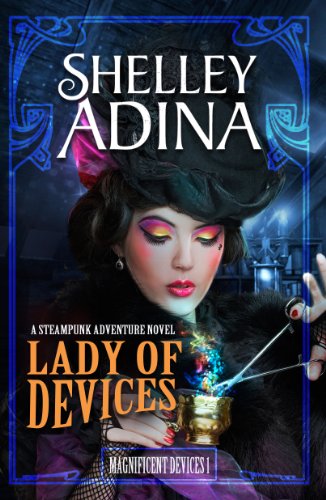AnomalyCon: “Is This a Kissing Book?”
On the weekend of March 25–27, I’ll be one of the guests of honor at AnomalyCon, a steampunk-flavored SF convention in Denver, Colorado. Yesterday, when I told her what I was doing, Gail Carriger looked delighted and assured me I’d have a wonderful time, and advised me to take lots of costumes! Upon which I resolved to, yes, take the BIG suitcase.
At the con, I am to speak on no fewer than eight panels, on a range of highly interesting topics. In order to get my thoughts together, I want to write a series of blog posts between now and then to help me plan what I might say. I hope you’ll bear with me in this self-indulgent behavior. It will help, truly.
Since it’s Valentine’s Day, what better way to start than with “Is This a Kissing Book? Romance in SF/F.”
Many of you know that I got my start in romance. My master’s thesis in the (then) MA (now) MFA in Writing Popular Fiction program at Seton Hill University was a romance novel, and was my first book-length sale. To Harlequin, the biggest purveyor of romance in the world. An aside: If you want to look at it, I’ve since received the rights back and published it myself, so you’ll find it here. I was a romance major in the program, because the courtship story has always interested me. When I was nine and reading Nancy Drew, her relationship with Ned Nickerson was nearly as interesting to me as her solution of the mystery. Maybe that’s why romantic suspense is still one of my favorite genres.
It’s no mystery, however, that even in the most hard-boiled police procedural case or science fiction battle or epic fantasy quest, romance can throw a spanner in the characters’ works. And that makes for good fiction. Let’s face it, even if you’re re-colonizing a post-apocalyptic Earth with nothing but your two hands and an ancient CD of A Lady of Spirit, you’re going to want to form a pair bond, aren’t you? I mean, the species kind of depends on it.
In my mind, nothing increases the emotional stakes for a character like caring about someone. This is the case in real life. It’s also the case in fiction. For me, it simply becomes more interesting when the additional component of emotional stakes is added to the story. Something has to matter more than the next battle or the next clue or the surprise dragon in the cave. That something is usually another person for whom not only the character, but also the reader has come to care. Frankly, if Our Hero doesn’t care about anybody, I’m not too inclined to care about him, either. Even the lone cowboy riding into the sunset after saving the town has left behind someone he cared about—maybe he’s sacrificed her to A Greater Cause. Silly man. She could have come with him. Perhaps she’s an excellent shot and he wouldn’t have had to fight that epic gun battle because she could have been posted on the roof with a lightning rifle.
Oh, wait….
Some members of the flock have written to thank me for not making the Magnificent Devices books “too mushy.” At the same time, others have written to say how much they enjoy reading about Claire’s relationship with Andrew (and yes, there are those who are still convinced Lord James is going to resurrect himself out of the ruins of that train to cause trouble). I like Claire and Andrew, too. I like how everything is not rosy after the first kiss. And I really like exploring their emotions and the push-pull that a woman feels between the course she has set for her life and the (not unreasonable) expectations of this new partner who wishes to share it.
It feels natural to me to build characters this way. And I hope that it makes for a rewarding read, too.




